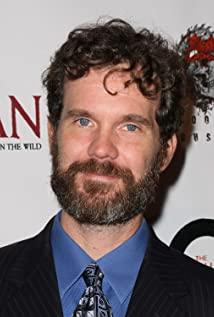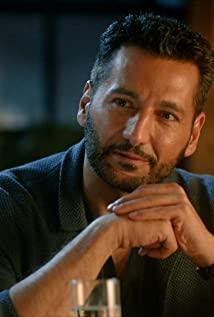The movie tells the story of a girl who was imprisoned, raped, and gave birth to a child, and finally escaped with the child and saw the sky again. Girls who have been imprisoned for many years and children who have been imprisoned and lived in their mother’s "room is the whole world" white lie, their process of adapting to the real world under the influence of life in captivity is the focus of the film.
Before watching the movie, my expectation of the plot was to show that the child would not be able to adapt to the world outside the room. This is also a problem that everyone will worry about, including the child's mother. So after she was rescued, all her energy was focused on doing her best to protect the child, to ensure that he would not be harmed by the outside world (such as grandpa’s psychological unacceptance), and to create conditions to establish a connection between him and the new world (let him not Indulge in animation but go to play Lego that most kids love). This maternal love is great. It was with this kind of love that the mother built the small world of the child during the days of confinement. But in the end, this kind of love still faces cruel torture: the reporter who interviewed the mother asked: why you didn't want to send your child out so that he can lead a normal life. Many people say that this reporter is really a beast, how do you ask such questions? Yes, this question is indeed too cruel for a victim who has just escaped from a nightmare, but from another perspective, should the act of reason and courage withstand the torture? My mother's answer was not that there was no way objectively but that "he has me." After the reporter asked this question in a more direct way again, his mother was speechless, her eyes were not angry, but panic.
To the reporter’s question, she first answered “he has me here” bravely, indicating that the answer is maternal love, which is beyond doubt. But what is behind the maternal love? Is maternal love originally used as the spiritual support for her to live in that world? At this point, who is the beneficiary of maternal love? If the man took the child away, what would happen to the child's situation? If he goes bad, he might be killed to avoid future troubles, so it is understandable that the mother shouldn't take this risk. But the film seems to suggest another possibility from the plot of the man giving the child a birthday gift and finally agreeing to send the child to a place where there is a tree, which is what the reporter said was that he asked the man to throw the child in the hospital and let him live a little normal. Life is not completely impossible. It's just that the child won't know that there is this mother, and the mother can only live miserably alone in this environment where there is no spiritual support. If there is such an idealized option, how would she choose? Maybe she hadn't thought about it, maybe love erased this option in her heart.
Let's take a look at whether the aforementioned mother's worry about the child's unsuitability after returning to the normal world is necessary. That's right, the child really can only hide in the mother's arms at the beginning. But during the time when the mother committed suicide and was sent for rescue, the child who escaped her mother’s arms went from being shy and reluctant to talk to establishing a harmonious relationship with her grandmother’s family, and even played with the neighbors and children outside the window easily. It can be seen that his ability to deal with all this is not as bad as his mother thinks. This may be because the ability to get close to people is inherently an instinct. Look at the scene of the two mothers protecting their children mentioned above. Think about it carefully. Grandpa has divorced from his grandmother and does not live together. His attitude has little effect on the children. Others are very friendly to the children. The children themselves I don’t care either (when I was dragged away by my grandpa’s mother, I was still focusing on what I didn’t finish eating); in a symbolic sense, TV does represent the old world, but in fact, watching TV and playing with building blocks connect with the world. The meaning of is not that big difference. Because when the child first came out, the child asked when his mother would go back, so the mother was always afraid that he would think that the room was home and could not integrate into the real world, and the audience could not help but worry about it. But in fact, the child quickly let go. The last time the child asked when he could go back, the mother (and the audience?) was surprised again, but this time the child understood her mother's worry: I just wanted to see it.
Does all this mean that maternal love becomes superfluous after returning to the real world? Of course I can't say that, but I have to admit that this is exactly what my mother is afraid of. Because love is also the umbrella she relies on to face this strange world, and it is the meaning she can convince herself to continue to support. She yelled to her mother, "I'm not living well without you guys", which also reflects that she longs for a meaning for others in the room and in the outside world, and supports herself to live by this. And giving love is the way to prove the meaning of one's existence. The mother who didn't dare to let go was the one who shut herself in that room and didn't come out. The children who walked out have already begun to think about doing their best, for example, by cutting off their heads and sending them to their mothers in the hospital, so that their mothers can be freed once again with their own help.
In this extreme environment constructed by the film, the above reality is exposed, but in ordinary life, it is not uncommon to rely on the love of others to support oneself. Giving love itself can get a great sense of satisfaction, and the loved one is sometimes kidnapped in pain. Does this mean that love is actually a selfish feeling? I often think that maybe there is no true selfless love in the world. I don’t know if it was my selfish perspective that led to this conclusion. But in any case, it was society that gave love too complicated meaning, and used various methods to forcibly show people how to love, so that love became the elusive way it is today.
So what is the true face of love? When such questions bothered me, the film also gave the answer. When grandma cut the child's hair, the child suddenly said, grandma, I love you. This is probably the ideal model of impurity-free love that the film provides us-a spontaneous feeling of intimacy between people. When the family ate together before, there was such a detail. It was probably what the grandmother’s husband wanted to help the child (I can’t remember). The mother asked the child "What should you say", the child said thank you, and the mother emphasized it louder. Others can't hear it. Therefore, this kind of gratitude to say thank you may be the same as the love we often see. It is more learned from the past, and it is only meaningful if it is received by others. But the child's grandmother's sentence I love you, must not have been taught by her mother.
Do you want to criticize the maternal love in the film? Of course not. It is not easy to protect yourself in such an environment. It is really great to work hard to protect children from harm. It's just that the plot arranges the child like an angel, being considerate and taking everything calmly. In contrast, the mother's inability to let it go is even more abrupt. I think the fundamental reason is that children who have not been affected by society are like a blank sheet of paper, and they are more likely to approach the original unmodified love. And growing up in a normal society, a teenage mother who is living in a nightmare, has too much burden on her back, and she is lost in the meaning of love. The same is true for me. The more I try to distinguish natural love from socially-added love, the more I find that they are entwined and cannot be unraveled. Just as a mother told her children the truth about the world for the first time-which ones are real and which are false on TV: talk shows are real, cartoons are fake, but what about historical dramas? True in a sense. There has always been no clear boundary between true and false. Since love has been given numerous and complicated meanings by society, as we grow up in society, it will not change back to its natural appearance, and there is no pursuit of the so-called "true" meaning.
Nevertheless, we still hope that love can bring more positive effects to the world. How to do it? I think first of all, love should be a spontaneous behavior, not an obligation imposed by society on both parties in a relationship. If love becomes a compulsory obligation, such as emphasizing that parents should love their children, and that children must be filial to their parents (although the truth is basically correct), it has become a moral constraint instead of love. Apart from the identities of parents and children, each individual is first of all an individual, and if he is a person, he will have a selfish heart. The ideal love should be a selfish solution to all the above that has made behaviors that actually benefit others, and that oneself is still benefiting from the soul, rather than a burden that involves both parties. Don't be obsessed with whether or not the loved one will reciprocate, because when we give love, we have already been rewarded spiritually. This is the greatness of love.
At the end, the child who returned to the hut suddenly said to his mother thoughtfully: If the door is opened, it will no longer be a room. I think the door here is probably a metaphor for everyone to put a barrier on their own souls. When it is opened, love will play its proper function in a healthy manner. The mother who heard this sentence still didn't understand, she still asked stubbornly: What's the matter, do you want me to close the door. The child said lightly: No. It was written on his face that there was no more nostalgia for this room.
View more about Room reviews











